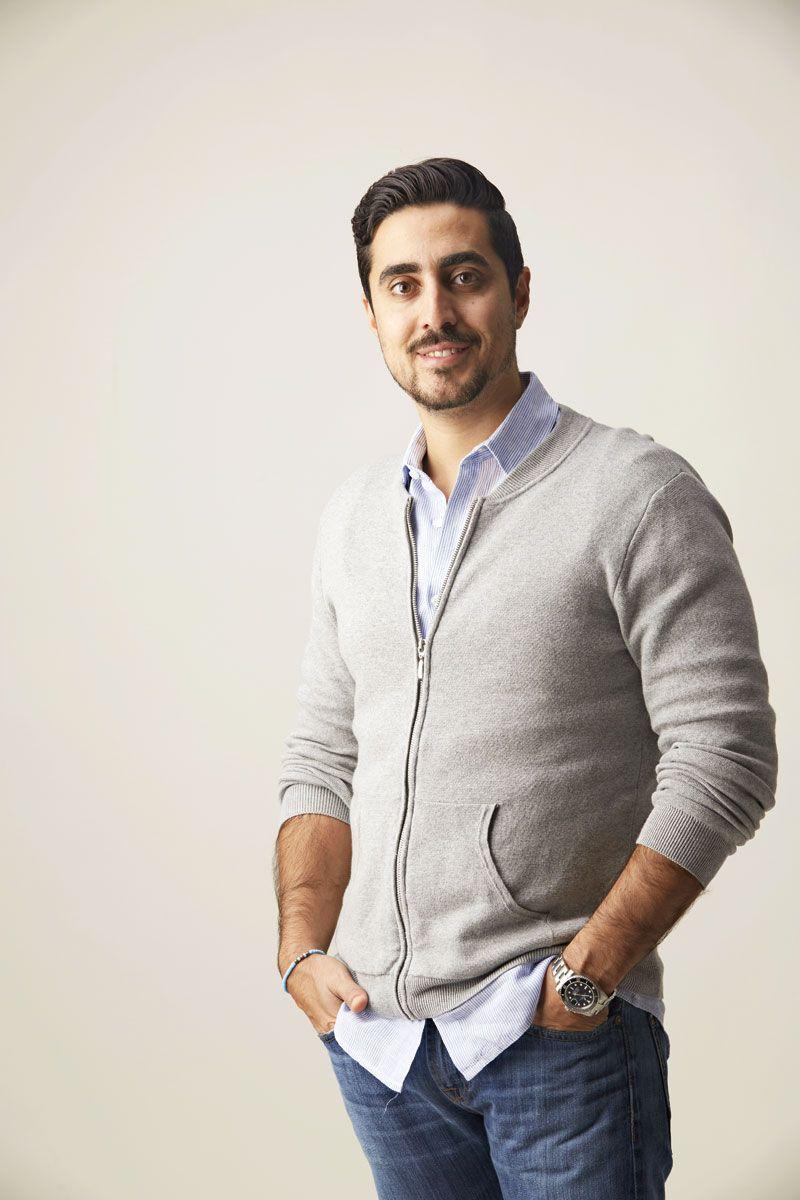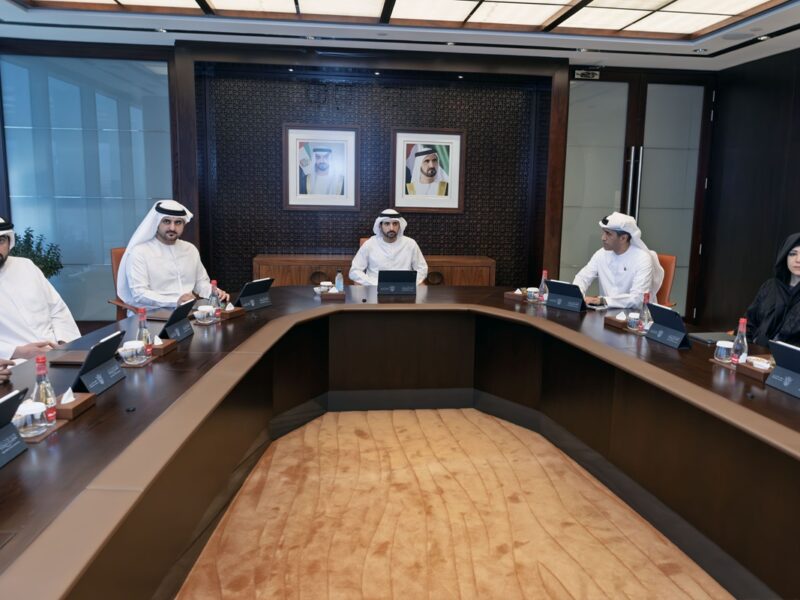It is a sign of the times that fewer and fewer banking professionals are waiting around to find out whether they will survive the latest round of redundancies at their respective workplaces.
One man who took matters into his own hands is 32 year old Kuwaiti, Bader Al Kalooti, the founder of Laundrybox and former investment banker at Citigroup in Dubai, who left the bank in 2012 following half a decade in the role.
“Why am I spending all these hours in the office if the bonus isn’t there anymore?” he asks rhetorically, thinking back to his previous employment.
It’s a question many bankers have been asking for some years now, and a question that has now proved easy to answer.
But for Al Kalooti, there was a long-standing itch that he was ready to scratch: the lure of entrepreneurship.
“For me it [investment banking] was always a transit point,” he admits.
“It was just something to get some corporate experience. I always knew I wanted to do stuff on my own, but at that point of time I realised: ‘That’s it. It doesn’t make any economic sense, the scale doesn’t balance anymore’.”
Letting go off the career security he had was contingent upon finding the right idea.
“I didn’t want to do anything that is copycat,” he explains.
“I wanted to do something that is on our own, brand new, developed from scratch and that is on a global scale. Not just a regional or a local play.”
With the bar set this high, few wonder why the concept he came up with is often referred to as a pioneering innovation capable of becoming the region’s first technology idea to be exported worldwide.
At the core of the Laundrybox concept is a network of automated and smart lockers in residential or commercial building lobbies. Users, usually tenants of the building, can drop off their laundry after creating an account online or at the locker kiosk.
Although they can personalise their preferences, which are stored for future reference, Laundrybox staff additionally inspect each item of clothing, send a picture of problematic stains to the users informing them of the best way to treat them or return garments with untreatable stains free of charge.
With a 24-hour turnaround the laundered clothes are delivered to the locker about which users receive an SMS notification. At-home delivery is provided within 48 hours and users receive a phone call to set a delivery time. An online payment option is also available.
Coming up with a system that is unique in terms of how it interacts with both the consumer and the backend of the operation, Al Kalooti explains, was a challenge.
“How you design the user journey and the business journey together to provide a convenient service was very difficult,” he says.
“We made sure that the communication flow is very streamlined, [that] the payment is streamlined, that everything works.
“We had to build the software, we then had to build the actual system itself. We got components from all around the world, Japan, China, Korea and then it was all assembled in the UAE.”
After quitting his job at Citigroup in January 2012, it took him one and a half years to perfect the system. The task ahead of him was to combine a digital platform with an offline element to bring laundry services in the 21st century and make it quick and convenient for users.
“To make software and hardware work is a challenging thing,” he says. “When you have a purely automated software system you have lot less challenges, but when you have hardware and software that have to work together in sync, it is very challenging.
“And it’s all proprietary. That’s one of our competences that we were able to create and manage it all in-house.”
At that time, the macro assessment of the laundry industry, he says, was compelling. “It is a high cash flow industry, non-cyclical, and it had very fragmented competition.
“There wasn’t a big, dominating player in the market and there was room for improvement. So all these things together make it a big business opportunity.
“Having an offline-online component gives you more competitive advantage, more barrier to entry. I think that now it is a more powerful trend than being purely online.”
Since the invention of the washing machine, the laundry industry hasn’t experienced many breakthrough innovations. If not doing their laundry by themselves and in their own house, users mainly rely on local laundry shops around the world.
Recently, a number of markets around the world have witnessed a facelift of the industry by the introduction of coin-op laundries.
The tech start-up wave has also brought numerous mobile and web applications to allow customers to request on-demand laundry services online.
However, it’s only a different route to the same place – a local laundry.
“I realised that I didn’t want to risk the quality because the outsourced partners wouldn’t be incentivised or able to meet the quality standards that I wanted to have,” explains Al Kalooti on why he chose to build his own laundry facility.
“If the quality is not there, the convenience doesn’t matter. At the end of the day, quality has to come with convenience.
“Not only are we pioneering the technology and bringing the convenience to the market, but we are also elevating the quality and service standards by having our own facility.
“We have the online, the mobile app, the locker, and we have the call centre because a lot of people in the market are not tech savvy, but they want to have their laundry done.
“The way we built our system, which is quite unique around the world, is that all these four angles relay into one system which then relays into our operating system.
“We are probably the only comprehensive laundry solution.”
Efficiency and convenience play key roles in his business model, but it is also designed to capitalise on Dubai residents’ lack of time to attend to household chores like laundry.
Al Kalooti takes pride in the fact that mainly word of mouth marketing has led their growth to currently 70 locations across Dubai and over 7,000 registered users since the launch in June 2013.
“It’s a win-win solution,” he adds, explaining that the concept has struck a chord among local real estate developers.
“They have to offer to their tenants a convenient service and they get to monetise on the empty wall space and because our lockers look very good, they make their space look more modern and high tech. They like that.”
With the concept well-received, an opportunity for a horizontal expansion in the scope of services has become evident.
“We quickly realised that this locker system, including the app, is basically a distribution mechanism that can allow businesses to reach customers and customers to engage with businesses seamlessly without having to coordinate on timing or to talk to one another,” he says.
Due to the system already put in place and customers already accustomed to it, the upgrade to MyBox – an umbrella concept offering shoe repairing services, tailoring services, and tech device repair services, in addition to already proven laundry services – will require little increase in overhead when launched next year.
“We will partner with reputable brands for shoe, device repair, and similar,” he explains.
“The users are already there, they know how to use the system, and they will be able to engage with the system for the variety of services.”
When asked whether his new business has benefitted from the training provided by his banking career, Al Kalooti says: “As you start developing your own business you realise that banking experience gives you a lot of advantages when it comes to financial modelling, creating business plans, raising funds, executing.
“It was a natural extension of what I was doing.”
In spite of the business model being capital-intensive, Al Kalooti had little difficulty in attracting investors’ attention. “I was very grateful that the concept had been very well received. I had to turn down people [investors],” he says.
“Every time I had a round, I had a surplus of investment and I got to be choosy. I think that the traction we’ve achieved and the concept in its innovativeness and scalability potential sold itself very well.
“The investors were very eager to participate in that journey.”
Nine individual investors supported the idea at the beginning of 2012 by providing initial funding of $1.2 million.
The second round of funding of $1.4 million was secured from Al Zarooni Emirates Investments (ZEI) in June 2013.
They chose to remain on board for the third funding round in November 2014 when Fadi Ghandour and two other individual investors joined to fund $2.3 million which would be allocated to modifying technology for MyBox, setting up franchise infrastructure, and spreading out to more locations in Dubai.
“They don’t want to go away,” he says when asked about how investors react to being turned down.
“They’ll try and find a way to make sure that you stay in touch for future rounds. They’ll try to position themselves as added value in a certain way. It’s always good to maintain a relationship.
“Here, it’s a small ecosystem so good ideas get sold out very quickly. People are active here now and want to get involved in the entrepreneurial ecosystem. It’s a favourable dynamic.”
Not only were people interested when it was time to write cheques, but also when the question of international expansion arose.
With more than 150 franchise requests already received from around the world, Al Kalooti prefers to stick to his slow-and-steady-growth style.
The first franchise, which was sold in Qatar, will become operational in February 2016.
He explains that the franchisees will not to be required to set up their own laundry facilities, but a logistics centre with many quality control measures will be put in place to check and improve the quality of laundered clothes once received from the outsource partner.
He says that approximately $500,000 to $1 million will be required from investors to set up a franchise and become operationally profitable. “Lastly, we are giving exclusivity per city,” he adds.
“So when you take a franchise from me I’m only dealing with one partner in that specific city. We don’t want to have multiple operators in one city because it gets complicated.”
Back home, his growth target is to reach 150 residential and commercial towers by the end of next year, while a lucrative exit is not an option. “No, not at all because we are building a new category,” he says.
“We are building a new model, proving it and now we have to start scaling it. The intention for us is to organically grow.”
The laundry industry seems a fertile ground for that.
With people preferring to keep their existing garments clean whether they can or can’t buy new ones, it was a sector that endured the recent financial downturn, and continues to expand.
In the region, it is expected to grow 20 percent in 2015 alone, according to research conducted by Middle East Cleaning Technology Week. Further opportunities will open up with the expansion of the construction, hospitality and healthcare sectors due to the UAE’s Expo 2020 and Qatar’s FIFA 2022 projects.
The winner of the Digital Business of The Year award at the recent Arabian Business StartUp Awards, Al Kalooti says his only concern is how to manage the growth: “We want to make sure that we are slow and steady,” he says.
“A lot of businesses make a mistake of trying to grow fast which breaks the foundation that they’ve built.
“For us, I think, we built a unique model. It’s very defensible. We’ve built a good customer base and it makes sense for us to grow slowly and steady instead of trying to go out there and blitz the market.”
For information, tips and advice on setting up a new business or insights from those who have taken the leap into the world of entrepreneurship, click on the Arabian Business StartUp section.










